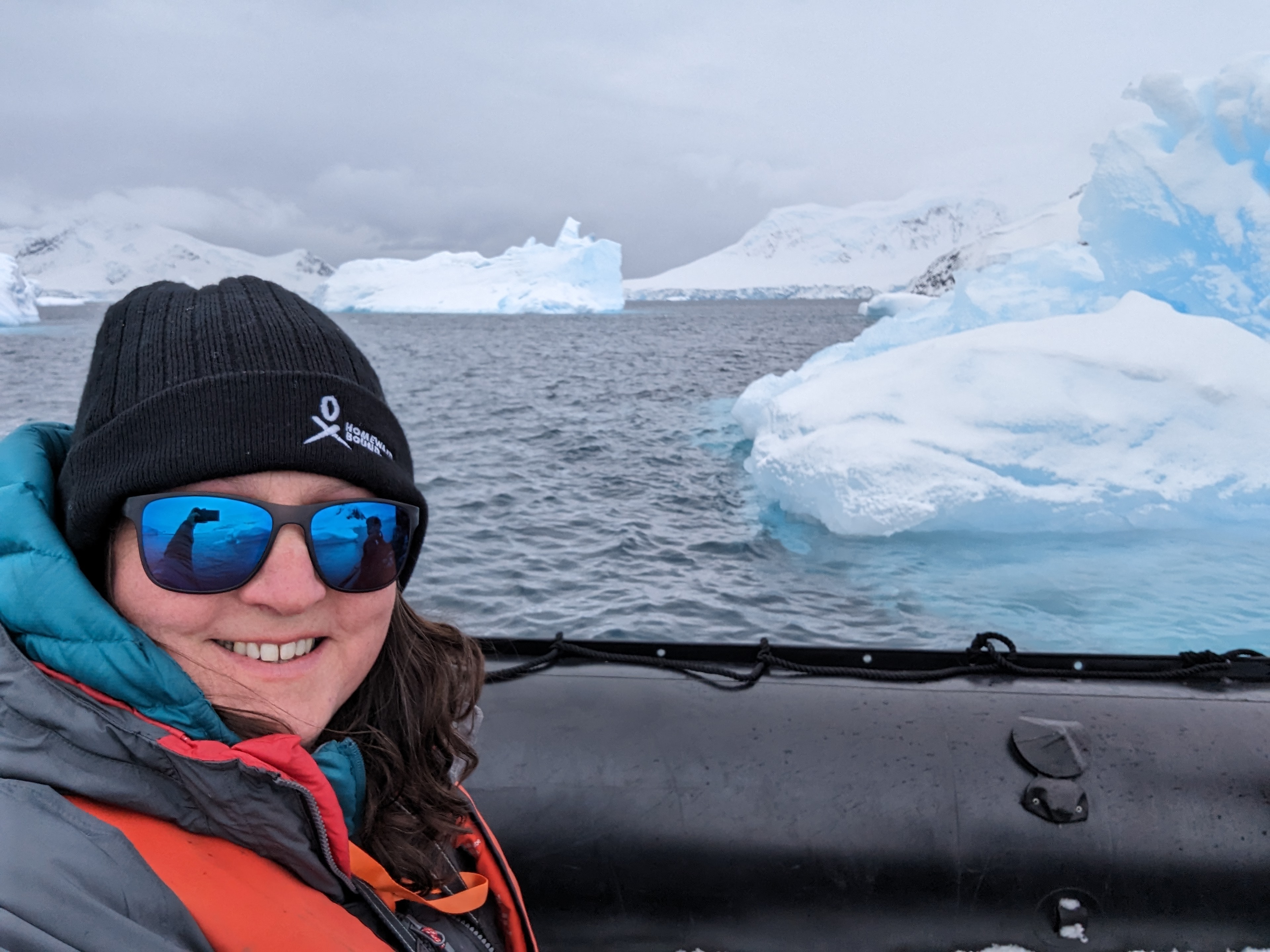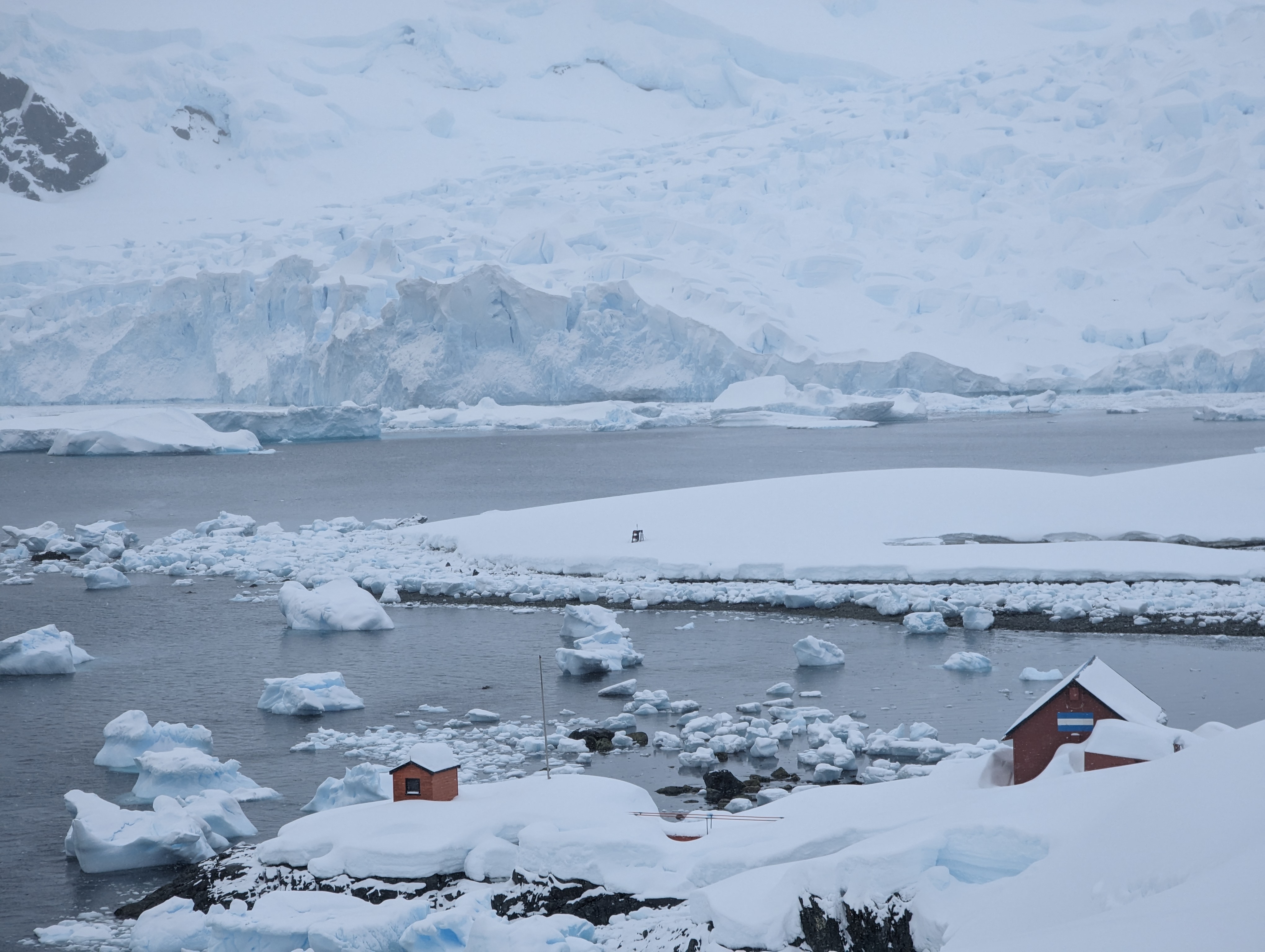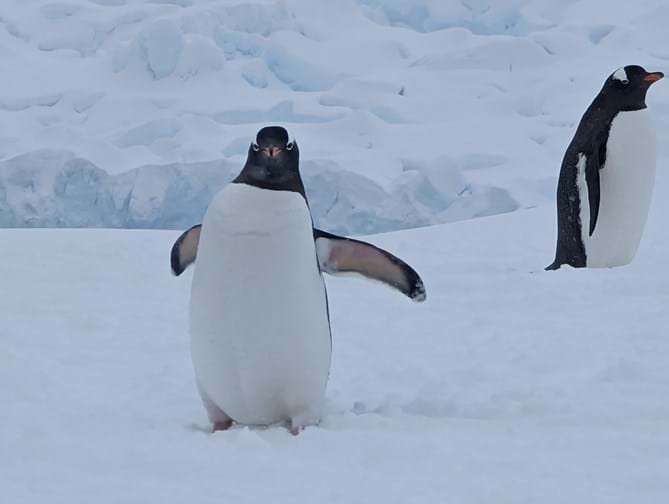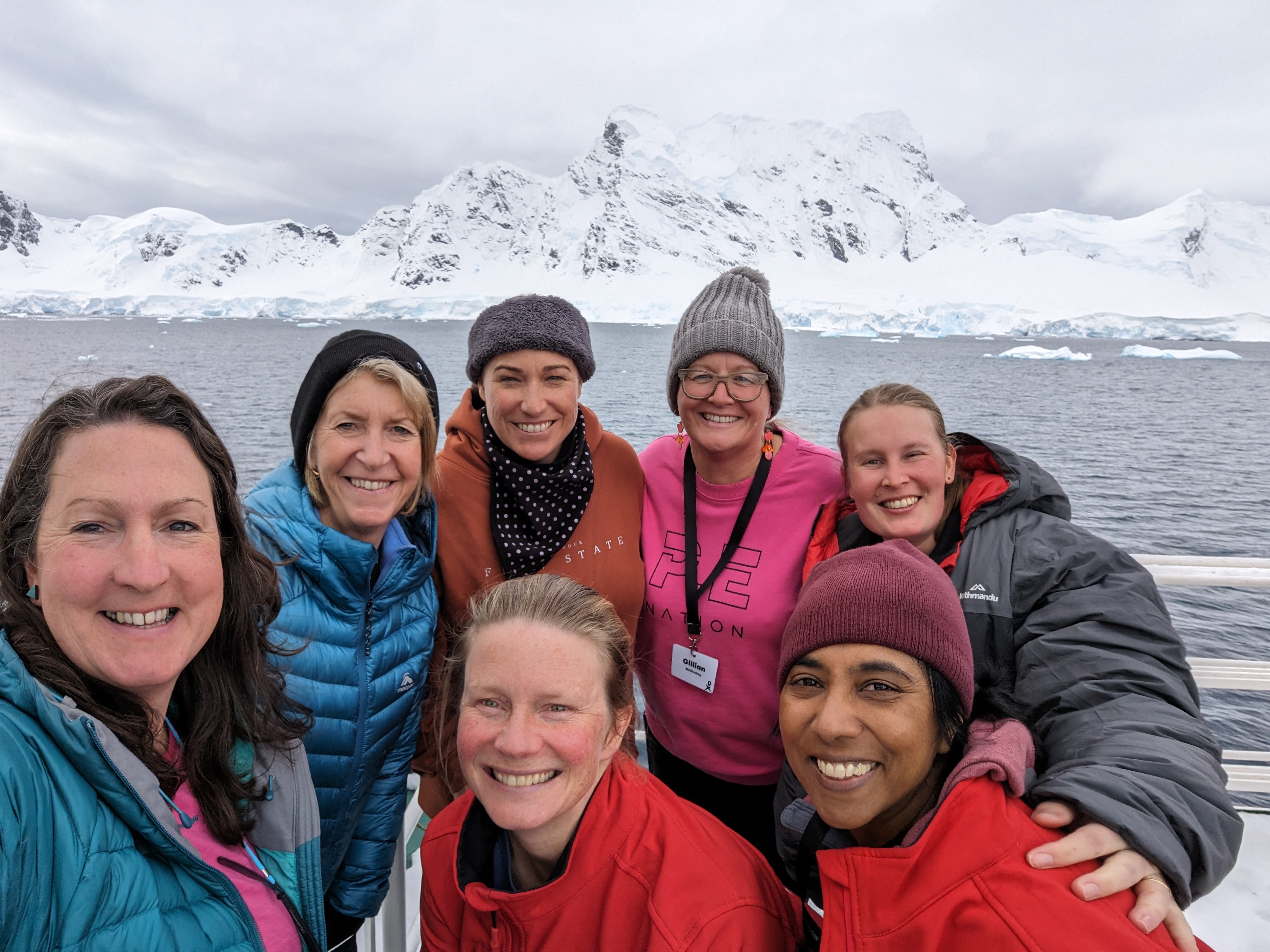Pause carousel
Play carousel

An Abertay University academic has made an emotional plea for collaborative climate action after documenting her voyage to Antarctica.
Dr Rebecca Wade, a senior lecturer on Abertay’s MEng/BEng (Hons) Civil and Environmental Engineering degree, was one of 88 women in STEMM (science, technology, engineering, maths and medicine) on the Homeward Bound voyage aboard the ship MV Ushuaia in November 2023.
The leadership programme gave the Dundonian climate scientist a unique opportunity to observe the effects of global warming on Antarctica and the Southern Ocean up close, witnessing how increasing temperatures are changing the face of the frozen continent visited by the crew of Dundee’s own RRS Discovery over a century ago.
Dr Wade documented the once-in-a-lifetime journey to Antarctica on video, witnessing avalanches, glaciers, icebergs and ice formations as well as jaw-dropping encounters with the area’s wildlife, from orcas to humpback whales, colonies of Gentoo and Chinstrap penguins, albatross, and more.
The Homeward Bound voyage brought scientists, medics, engineers, ecologists, computer scientists, physicists, CEOs and more together to bear witness to the impact of climate change at one of the places on earth where it is being most keenly felt.
The project is establishing a global network of women in STEMM, with participants returning from Antarctica better connected, better informed, and better prepared to tackle the climate emergency and fight for a more sustainable future.

Dr Wade, who is also a board member of Dundee Science Centre, said she has arrived home to the city instilled with “renewed hope and determination” after experiencing the voyage and witnessing the changes affecting Antarctica.
She added:
Taking part in the Homeward Bound voyage together with a team of incredible women from STEMM backgrounds - and witnessing firsthand the majestic, awe-inspiring scenery and nature of Antarctica - was truly one of the greatest experiences of my life. It provided a unique opportunity for us all to observe and more fully understand the real-world implications climate change is having on Antarctica. By bearing witness to the effects of warming temperatures on that incredible landscape, the women of Homeward Bound have returned to our home countries more motivated than ever to fight for, and protect, this beautiful planet of ours. We absolutely must retain our hope, energy and drive so we can preserve not just Antarctica, but the spaces and places on our doorsteps. The places that we see and use every day. It’s so important that we protect our planet and remember the wonderful benefits that we get from nature.
It comes after 2023 was confirmed as the hottest year on planet earth since records began due to a combination of human-induced global climate change and a natural climate pattern known as El Niño, which can influence weather around the globe. Last year was also the UK’s second warmest on record - just behind the warmest year so far, 2022.

Antarctica’s role in regulating global temperatures is under more scientific scrutiny than ever amidst the climate emergency, with the continent undergoing some of the most rapid warming on Earth.
The frozen continent is surrounded by the Southern Ocean, often described as the “beating heart” of the world’s oceans. It produces deep and powerful currents of cold water that drive global ocean mixing and regulate atmospheric temperatures. Changes that occur in Antarctica and the Southern Ocean impact global ocean circulation patterns that can in turn affect the world’s climate.
Dr Wade added:
Antarctica acts as a heartbeat for our planet. The changes we are seeing there are having implications across the globe, including here in Scotland. Our experience with flooding and storms in recent months provides yet more evidence that climate change, and especially extreme weather events, are already impacting many aspects of our natural environment and society in Scotland. The knowledge, skills, experience and enthusiasm I have gained as part of the Homeward Bound voyage will be passed on to our students here at Abertay University and to many others via talks and public engagement events. It’s really important to me that this experience feeds directly into my teaching, civil and environmental engineers have a hugely important role to play in combatting climate change and addressing sustainability head-on. They will be the next generation to design, build, operate and maintain the infrastructure we use every day, and will be key to reducing our carbon footprint in the years to come. I am certain that the incredible network of Homeward Bound women will inspire many other women and girls to get into STEMM fields, including civil and environmental engineering, as we build towards a more sustainable future for our planet.
As part of the trip, Dr Rebecca Wade also created a series of photos and videos that documented her journey exclusively for Dundee schools. Ahead of the trip, Dundee Science Centre gathered a list of questions from local primary school children for Dr Wade to answer while on her voyage.
Lorraine Lemon, Head of Business Development at the Dundee Science Centre, said:
Dr Wade’s voyage presented an amazing and unique opportunity for local school pupils who had the chance to ask some really interesting questions about her trip to Antarctica while she was actually there. They wanted to know everything from how cold it was and what equipment she needed to how she’d been chosen for the expedition and whether she’d like to live there. She also logged her experience on board the research vessel and gave a glimpse into the continent’s wildlife, including Chinstrap penguins and crabeater seals. The collaboration aimed to inspire Dundee schoolchildren to learn more about Antarctica and to feel their questions and curiosities travelled with Dr Wade on her exciting journey.

Dr Wade was joined on the Homeward Bound venture by city-based women Fiona Logan, CEO of Insights, and Irene Tierney, director and principal ecologist at IMTeco Ltd.
The Tayside contingent followed in the wake of legendary explorers Captain Robert Falcon Scott and Sir Ernest Shackleton, who made a landmark voyage to Antarctica on board the city-built RRS Discovery in 1901.
The vessel was the first-ever ‘research ship’, and data from the expedition is still used as a baseline for modern-day climate science.
Dr Wade’s full video diary can be viewed on Abertay’s YouTube channel.